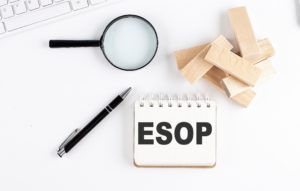

CLICK HERE TO LEARN MORE OR REGISTER | Live Webinar + On-Demand Course Access
The enactment of the 2023 Omnibus Bill, a comprehensive spending bill funding the federal government for the fiscal year 2023, is presenting a huge advantage for Employee Stock Ownership Plan (ESOP). The Omnibus Bill enumerates several provisions aimed at educating businesses and workers and providing clarity and transparency in creating and administering an ESOP.
While ESOP is a powerful tool for business succession, especially for startups, and as more and more turn to ESOP as a viable corporate finance technique, it is crucial to understand its pros and cons and be up to date with regulatory developments to avoid potential pitfalls.
Listen as experienced employee benefits lawyers David R. Johanson (Hawkins Parnell & Young LLP) and Michelle Buckley, CPA, AIFA (Meaden & Moore) provide a dynamic discussion of the key developments and significant issues surrounding ESOP, succession planning, and their tax implications. The esteemed speakers will provide an in-depth analysis of their benefits and share insights into what makes for a valuable investment in ESOP.
Key topics that will be covered in this discussion are:
- ESOP Structure: The Nuts and Bolts
- Mapping Out ESOP Concepts: Qualify Your Business
- The Big Picture: Pros and Cons of ESOPs
- Reaping the Benefits of ESOPs: Tax Advantages
- Regulatory Outlook, corporate governance, and fiduciary liability issues
Learning Objectives:
- Learn about the nuts and bolts of ESOP structures, including its key components, legal requirements, and best practices.
- Understand how to qualify your business for an ESOP and how to map out different ESOP schemes.
- Gain an understanding of the pros and cons of ESOP for succession planning and finance needs, and how to maximize ESOP tax benefits.
